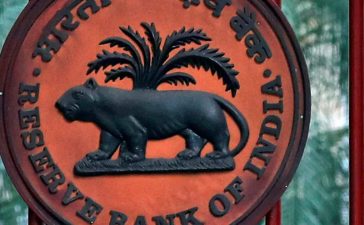
1. Who is a Mutual Fund Distributor (MFD), and How Do You Find One?
Mutual Fund Distributors (MFDs) are certified professionals authorized to guide investors in purchasing mutual funds. They act as intermediaries between investors and Asset Management Companies (AMCs) and are regulated by SEBI. As of now, over 2 lakh MFDs operate in India, managing investments worth approximately Rs 13,00,000 crore.To find a certified MFD, you can use the AMFI Locator, a tool that helps investors identify MFDs in their vicinity. You may also seek recommendations from financial advisors or other investors, but always ensure the distributor is certified and registered with AMFI.
When you invest through an MFD, your investments fall under the “regular plan,” where a commission is paid to the MFD from the fund’s expense ratio. On the other hand, direct plans, which do not involve an intermediary, have lower expense ratios since they exclude commissions.
Key Tip: Always verify an MFD’s credentials and certifications to ensure you are dealing with a legitimate, knowledgeable professional.
2. What Qualities Should You Look for in a Mutual Fund Distributor?
Choosing an MFD is a critical decision because they directly influence your investment journey. It is important to assess their knowledge, ethics, and approach to financial planning. Below are some key qualities you should look for in an MFD:
- Understanding of Risk Profile: With over 2,500 mutual fund schemes available in the market, each with varying risk-return profiles, it’s crucial that your MFD helps you identify the best options based on your risk tolerance. For example, high-risk investments like Small Cap or Sectoral Funds can offer higher returns but may also incur significant losses during market downturns. An MFD must be capable of evaluating your ability to handle such risks.
- Goal-Oriented Process: Your MFD should understand your financial goals—whether short-term or long-term. Long-term goals, such as retirement, may allow for more equity exposure, while short-term goals might require safer, debt-oriented funds.
- Fund Selection Mechanism: The MFD should have a clear and logical process for recommending mutual funds. Ask how they select the funds they recommend and whether they consider factors like historical performance, fund manager reputation, and alignment with your goals.
- Regular Portfolio Reviews: A good MFD doesn’t just recommend funds and disappear. Regular reviews (usually every six months) are essential to ensure your investments are on track. The MFD should help you rebalance your portfolio, monitor underperforming funds, and make adjustments based on market conditions and your evolving financial goals.
Key Tip: Request to speak with existing clients of the MFD to gauge their reliability and the quality of their service.
3. How Do Mutual Fund Distributors Earn Money?
Mutual fund distributors earn their income through commissions paid by the fund houses (AMCs) rather than charging fees directly to the investor. The commission structure typically includes a “trail fee,” which is a small percentage of your invested amount, ranging from 0.5% to 1% annually.
For example, if your portfolio is worth Rs 10 lakh, the MFD could earn between Rs 5,000 to Rs 10,000 per year, paid monthly by the AMC. This fee is already included in the mutual fund’s expense ratio, so as an investor, you do not need to pay anything extra to the MFD.
Key Tip: Make sure you understand the commission structure of the mutual funds you’re investing in and check for any potential conflicts of interest.
4. Are There Conflicts of Interest in the Commission-Based Model?
The commission-based earnings of MFDs may create concerns about conflicts of interest. After all, if an MFD earns commissions based on the funds they sell, there might be a temptation to recommend funds that offer higher commissions rather than those that are genuinely best suited for the investor.
That said, the regulatory framework in India has evolved to address these issues. SEBI and AMFI have imposed stricter guidelines on MFDs, including prohibitions on misrepresentation and transparency requirements. Still, it’s essential for investors to be vigilant and ask the right questions.
Here are some red flags to watch out for:
- Recommending New Fund Offers (NFOs): If your MFD frequently pushes new fund offers without a performance track record, this could indicate that they are more interested in earning higher commissions than in ensuring your financial growth.
- Portfolio Churning: Frequent advice to redeem and reinvest in different funds could lead to higher transaction costs and tax liabilities, reducing your overall returns.
- Promises of Guaranteed Returns: Be wary of MFDs who promise guaranteed returns from mutual funds. No mutual fund product can legally offer guaranteed returns, and such promises violate SEBI regulations.
Key Tip: Always be cautious if an MFD offers schemes that seem too good to be true or suggests frequent fund switches.
5. What Should You Ask During Periodic Portfolio Reviews?
Regular portfolio reviews are essential to ensure that your investments remain aligned with your financial goals and risk profile. Here are five crucial questions to ask your MFD during these reviews:
- Are My Mutual Funds Performing as Expected?: Compare the performance of your mutual funds with their respective benchmarks over a consistent period. If a fund consistently underperforms for more than three years, it might be time to reassess your investment.
- Should I Rebalance My Portfolio?: As you approach your financial goals, it’s essential to shift from higher-risk equity funds to more stable debt-oriented funds. Ask your MFD whether your asset allocation needs adjustment.
- Do My Investments Still Align with My Financial Goals?: Financial goals can change over time. Whether it’s an unplanned expense like purchasing a car or a long-term goal like buying a house, ensure that your investments are flexible enough to meet your evolving objectives.
- How Should I Invest Any Surplus Funds?: Surplus income, whether from bonuses, gifts, or unexpected windfalls, should be invested wisely. Ask your MFD to recommend where these additional funds can be placed for optimal growth.
- Are There Any New Investment Opportunities That Fit My Profile?: While you should be cautious of unnecessary churning, periodic reviews are also an opportunity to explore new investments that align with your risk tolerance and financial objectives.
Key Tip: Regular reviews will help you stay disciplined and make informed adjustments based on changing market conditions or personal circumstances.
Conclusion
The relationship between an investor and their MFD should be built on trust, knowledge, and transparency. By asking the right questions, understanding how your MFD operates, and regularly reviewing your portfolio, you can ensure that your investments remain aligned with your financial goals.




